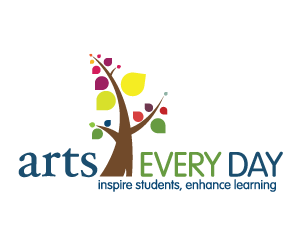
The inevitable Baltimore heatwave always makes summer feel like summer – but this year is different for many reasons. Just this week, Baltimore City Public Schools CEO, Dr. Sonja Santelises announced that the district would begin the 2020-21 school year virtually. The pandemic has demonstrated the City’s intractable digital divide and exacerbated issues of racial inequity that have always been present in our education system. Here are some issues that we are closely monitoring:
- State Education Funding: As a partner in the Coalition for Blueprint for Maryland’s Future, we testified in support of the Kirwan Commission’s work to reform education statewide. This landmark piece of legislation was passed by the Maryland House and Senate this Spring only to be vetoed by Governor Larry Hogan in June. We continue to call on lawmakers to #OverrideTheVeto. I encourage families, community members and organizations to follow this issue through the work of Strong Schools Maryland, Maryland State Education Association and ACLU of Maryland.
- State School Reopening Plans: When the Maryland State Department Education released the “Maryland Together: Maryland’s Recovery Plan for Education” outlining how districts should reopen schools, statewide advocates immediately raised concerns around equity. We stand with the Maryland Education Coalition in calling for MSDE to adopt clear principles of equity and require local school systems adhere to them. Read the Coalition’s letter to State Superintendent, Dr. Karen Salmon here.
- Baltimore City and the Digital Divide: In Baltimore, some 96,000 households, or almost 41% of the city, lack wireline internet service like cable or fiber, and one-in-three households do not have a desktop or laptop computer, according to a recent Abell Foundation report. The Baltimore Digital Equity Coalition is a grassroots coalition composed of youth-led organizations and nonprofits working to increase access to devices, internet access and the technical support necessary for Baltimore City students to engage in virtual learning. To request a laptop or internet access support, visit Baltimore City Public Schools here.
- Arts Education Statewide: According to Federal and State regulation, districts are required to provide every student, every year with an instructional program in visual art, music, theater, dance and media arts. Nationally, we know that students of color have less than half of the access to arts education as their white peers. When we deny young people access to the arts we are denying access to culture, representation, and self expression. Follow the work of Arts Education in Maryland Schools and the #WeAllDeserveArts campaign and blog.
- Arts Education in Baltimore City Public Schools: Baltimore City Public School district adopted a Fine Arts Strategic Plan in 2018 with the bold goal of moving the district towards compliance with COMAR and achieving equitable access to the arts by the year 2022. The district has made great progress towards this goal thanks to the Offices of Fine Arts and Teaching and Learning, including the addition of a Fine Arts Specialist, adding a second position to the team for the first time since 2003. In this open letter to the Baltimore City School Board of Commissioners, we ask that district-level and principal-level administrators have the same expectations of quality instruction, student participation, appropriate funding, and administrative support for Fine Arts classes as for other academic classes. Furthermore, we ask that the district dedicate per pupil funding, to be supplemented by schools, to ensure each student has access to take -home arts supplies.


No comments yet.